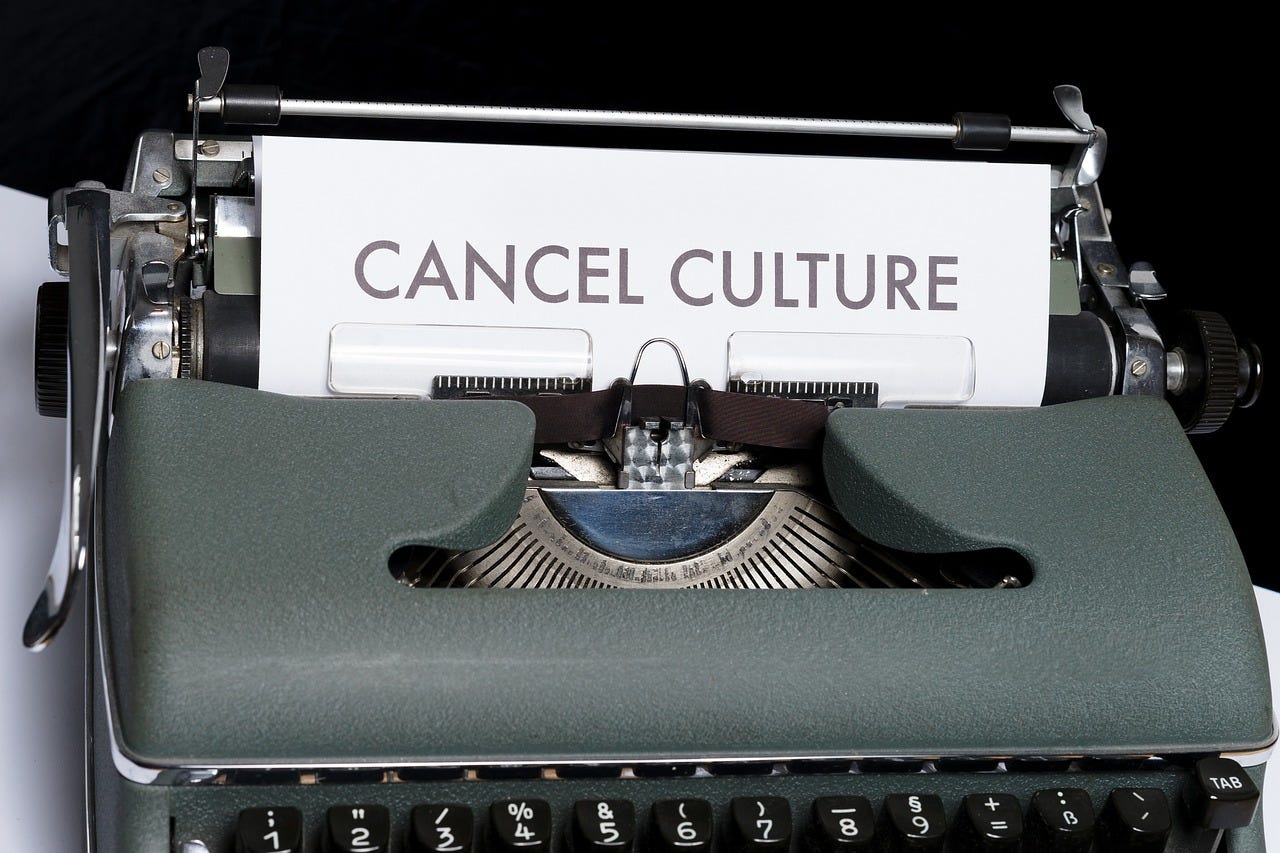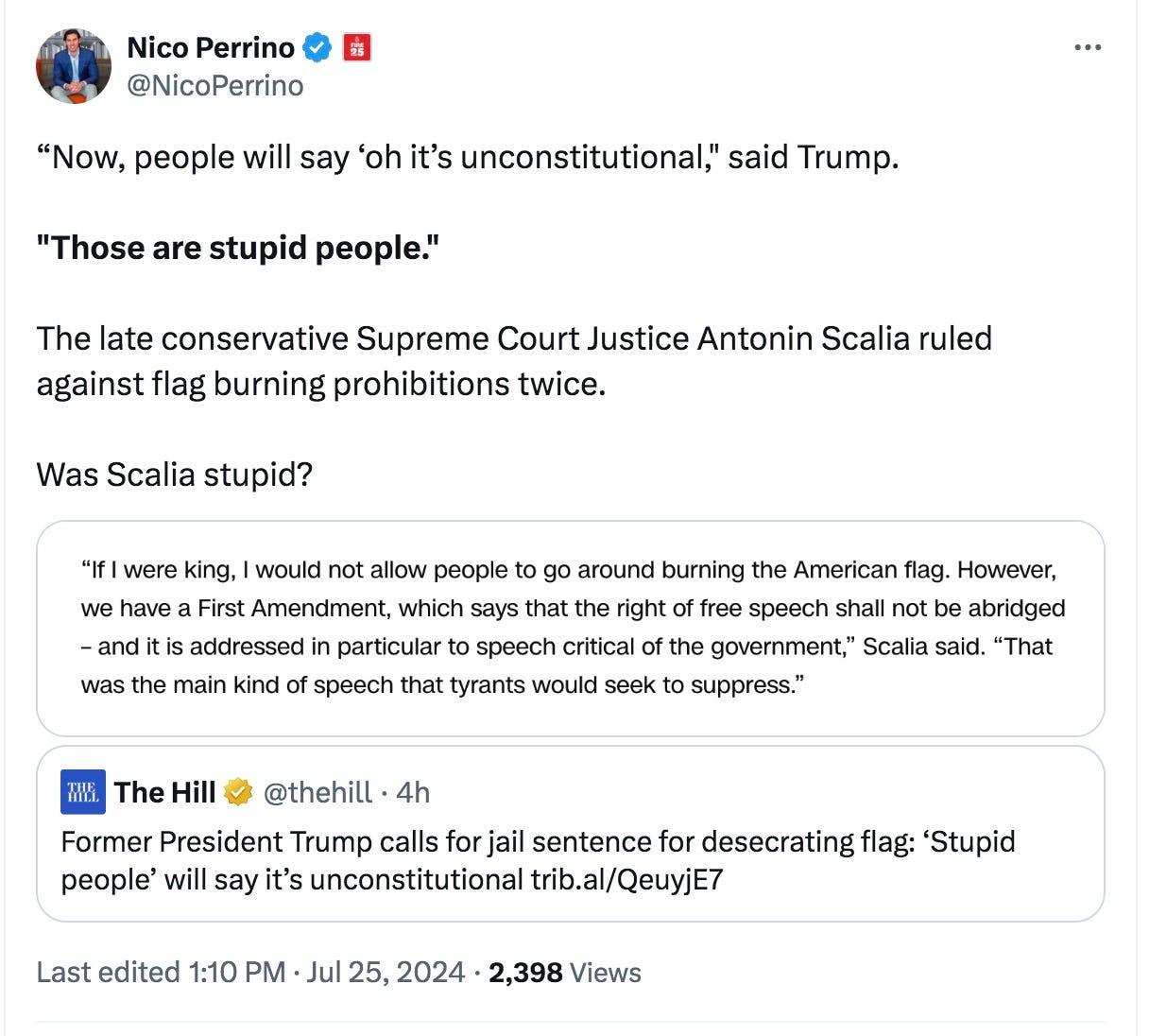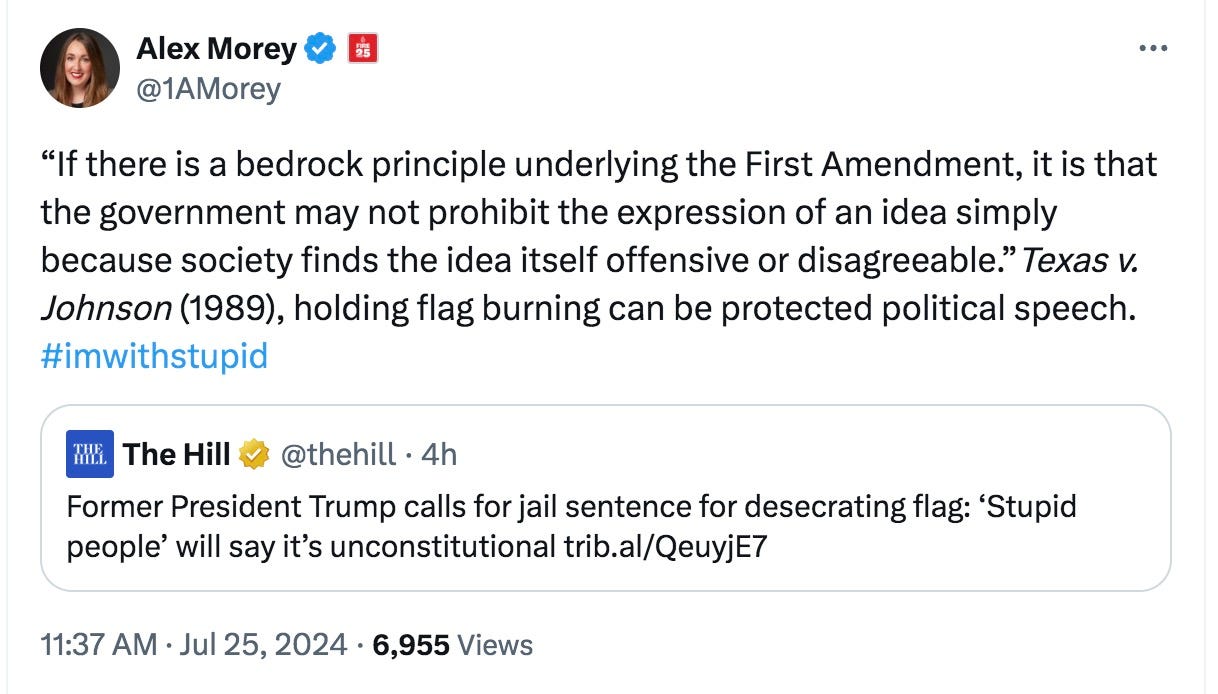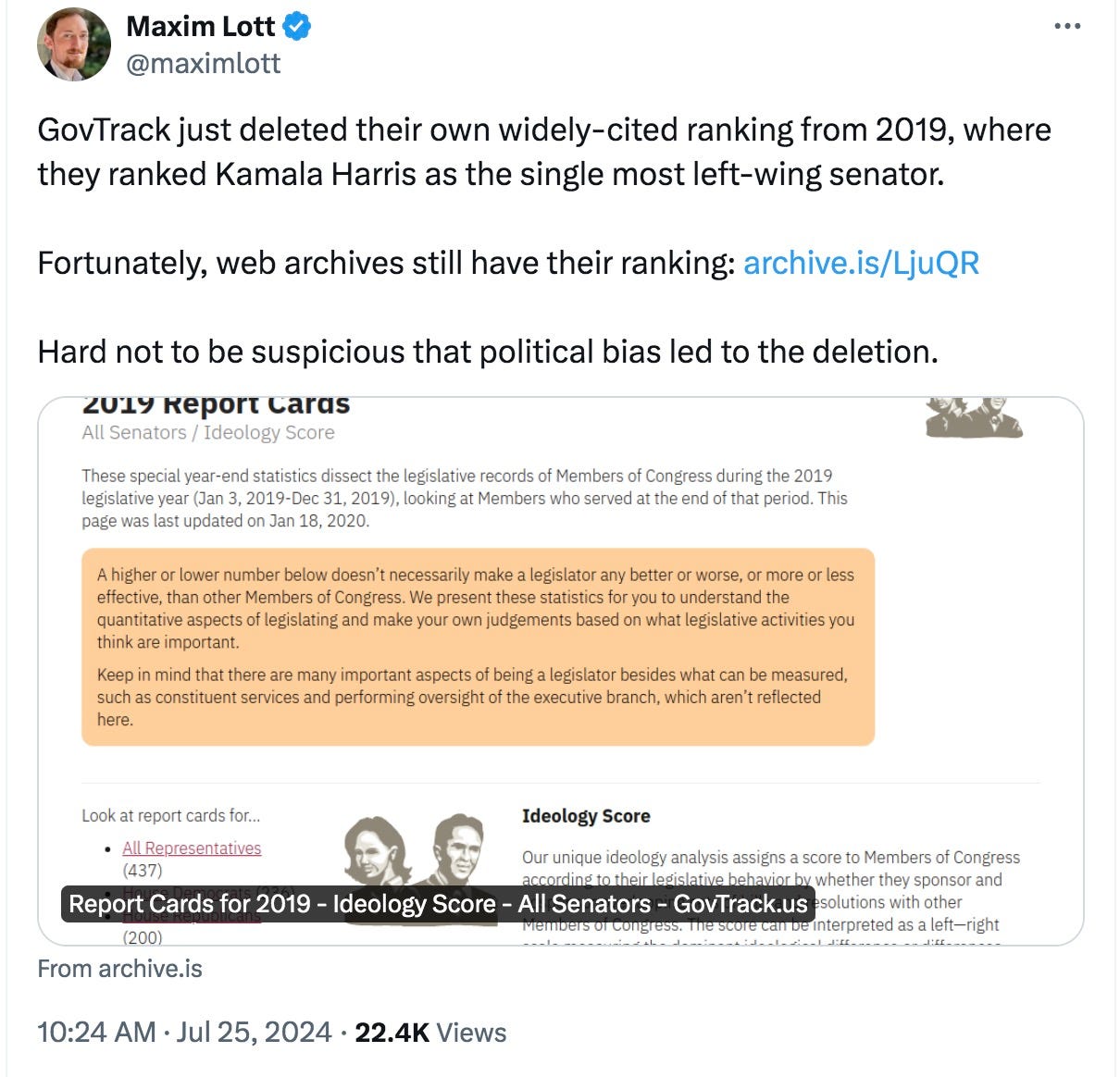E-Pluribus | July 25, 2024
'God and country,' or country is god?; cancel culture by any other name; and Meta shoots down Olympians' free expression.
A round-up of the latest and best musings on the rise of illiberalism in the public discourse:
Kevin D. Williamson: For Christian Nationalists, Politics Is God
If religion and politics are the top-two subjects to be avoided in polite company, Kevin Williamson at The Dispatch is really throwing caution to the wind. After attending NatCon4, a National Conservatism convention, Williamson writes that Christian Nationalism as represented by this conference stands the First Commandment on its head.
As any halfway serious religiously minded person would have predicted, the combination of Christianity and nationalism has profoundly corrupting and trivializing effects on Christianity. The human being being human, he lives in a small world in the here and now, and whatever spheres of profundity he may meditate upon when the spiritual mood is upon him, most of his time and attention is taken up by the essential human things: competition for material necessities, sexual partners, and—of highest importance once the physical requirements have been satisfied—status.
Eternity feels really far away—although it isn’t, it is already here—whereas the coming election in November feels immediate and urgent. The need to make such contests feel even more immediate and more urgent is why we have all of these amoral entrepreneurs trying to convince your grandfather that this is the most important election in American history, that the choice is between restoration and ruination, etc. If your grandfather has a minute to stop and think and turns his eyes toward the eternal things, it is going to be a lot harder for the Heritage Foundation to take $500 from him with one of its gross, dumb, dishonest direct-mail “surveys.” Whatever you hear from the pious ladies and gentlemen on the NatCon stage—or at the RNC—the last thing they want is for these rubes to actually turn their eyes toward Heaven, lest they notice that God is not watching Fox News, but is watching them.
Whatever you hear from the pious ladies and gentlemen on the NatCon stage—or at the RNC—the last thing they want is for these rubes to actually turn their eyes toward Heaven, lest they notice that God is not watching Fox News, but is watching them.
As it stands, it is inevitable that among these professing Christians and avowed nationalists, the Christianity is subordinated to the nationalism.
[. . .]
“Woe unto them that call evil good, and good evil; that put darkness for light, and light for darkness; that put bitter for sweet, and sweet for bitter! … Which justify the wicked for reward, and take away the righteousness of the righteous from him.”
Read the whole thing.
Josh Allan: The Return of Right-Wing Cancel Culture
Cancel culture seems to be a phenomenon best recognized from a distance. Close up, Josh Allan writes, it comes across as just reasonable consequences. Allan says recent events have demonstrated that too many on the right suffer from this unique form of nearsightedness.
You can often infer more about the health of a society from the way it reacts to events than from the events themselves. When US presidential candidate Donald Trump was shot in the ear last Saturday while giving a speech at a rally in Butler, Pennsylvania—a shot that would almost certainly have killed him had he not turned his head at the last second—the responses from most mainstream public figures were refreshingly civil. President Joe Biden tweeted that he was “grateful to hear that he’s safe and doing well,” while celebrities, politicians, and other world leaders offered their condolences to Trump and to the other victims of the shooting.
On the other hand, some members of the public were less genteel in their responses. Many engaged in an entirely predictable rigmarole of publicly lamenting that the shooter had missed. What was perhaps less predictable—at least to those of us who have come to associate cancel culture with the political Left—was the way in which activists on the Right have chosen to respond to these rather crude remarks by agitating for the offenders to be deplatformed or even fired.
[. . .]
So far the roll call of those who have been fired includes several teachers, a school counsellor, a university professor, a nurse, a community outreach manager, a worker for the dirt-track racing company Race On, a cashier at Home Depot, a staffer for congressman Bennie Thompson, a police sergeant, and a golf caddie. A medical assistant is currently under investigation: former Congressman George Santos thundered that he would “wreak havoc if @NorthwellHealth doesn’t take IMMEDIATE action on this individual.” Meanwhile the victims of these doxxings have found themselves besieged by hate mail on social media, including messages far more caustic than the offending remarks themselves, while schools and businesses have been deluged with abusive phone calls.
The comments in question certainly are distasteful. “Too bad the shooter missed,” writes one of the social media users. “[H]e’s a martyr,” opines another, describing the would-be assassin. A third confesses to being “sickened with myself that I was disappointed the shooter missed.” In the US, employers have the right to dismiss employees whose social media posts might jeopardise the reputation of the company. Even America’s First Amendment, which guarantees freedom of speech for all citizens, makes an exception for incitement. That incitement, however, must be direct and clearly defined, a classification that scarcely applies to the social media comments in question—however crass or malicious they may be.
[. . .]
Furthermore, many of the social media comments seem purely performative. Vicious remarks about politicians of all stripes are made every day on social media. The urge to condone acts of violence has plenty of precedents, from anti-Catholic responses to the assassination of JFK to the aftermath of the attack on Paul Pelosi. Nor would the comments about Trump have brought disrepute to the posters’ schools, businesses, and institutions had Libs of TikTok not chosen to share the offenders’ personal details with a wider public, forcing Home Depot, Northwell Health and other employers to make difficult choices under intense public pressure. As GB News host Andrew Doyle has pointed out, while people with public-facing roles, such as press spokesmen and journalists, may need to be more careful with their pronouncements on social media,
[. . .]
The agents of 21st-century cancel culture have come predominantly from the Left, a phenomenon that has been attributed to the censorious tendencies supposedly endemic among socialist authoritarians, and which drove Stalin, Mao and others to enact some of the most repressive policies the world has ever seen. The likelier explanation, however, is that this is not so much a left-wing inclination as a constant temptation to anyone who exercises a modicum of power over others. Centrists and conservatives, as well as progressives who do not toe the party line, make for easy pickings in a culture dominated by progressive ideology. But the Left’s cultural hegemony was undermined when the former president came within an inch of losing his life.
Read it all here.
Tim Rupli: Meta Censors a Paralympic Shooter
Context matters, except when it doesn’t. This appears to be how Meta (Facebook) looks at guns. And some Olympic athletes have been caught in the political crossfire. Tim Rupli at The Wall Street Journal explains.
McKenna Geer is scheduled to represent Team USA at the Paralympic Games in Paris next month. The 28-year-old Washington state native, who was born with a muscular disorder called amyoplasia arthrogryposis, will compete in the air-rifle event. Yet if Ms. Geer wants to post about her athletic adventures abroad on social media, she’ll likely be out of luck. Why? Meta, the parent company of Instagram and Facebook, has shadow-banned her for her shooting-related posts.
[. . .]
“I have always feared the day the media would censor my sport and speech just because I use firearms,” Ms. Geer posted on Instagram on July 17. “That day has finally come.” Meta initially blocked Ms. Geer’s ability to appeal the decision, and her account remains shadow-banned while her appeal is under review with only a month to go before the competition. Meantime, the tech company is shielded from civil lawsuits under Section 230 of the Communications Decency Act.
Ms. Geer isn’t the first athlete subjected to such treatment. Meta recently censored Team USA shotgun athlete Conner Prince. It also “unpublished” the Facebook page of the West Point Rifle Team at the U.S. Military Academy. According to the platform, it did so “because Army West Point Rifle goes against our Community Standards.”
Yet shooting has a storied tradition honored by communities across the globe.
[. . .]
Kelly Reisdorf, CEO of USA Shooting, says she is concerned about the company’s decision: “By silencing an athlete’s voice, you infringe not only on their freedom of expression but subtly on their right to bear arms as well, as these platforms are critical for educating and sharing the legitimate and safe use of firearms in sport.”
To honor the Olympic spirit of fair-play competition and nondiscrimination, Meta should reverse its restrictions and restore the athletes’ accounts. These men and women have earned their place representing the U.S. on the world stage. Why wouldn’t Meta let their sportsmanship shine?
Read it all.
Around Twitter (X)
How far does free speech go? Quite far, the Foundation for Individual Rights & Expression says:
Speaking of controversial…what about flag burning? “Stupid people” say it’s unconstitutional to jail people for flag burning, says Donald Trump. Nico Perrino (among others) disagrees:
And finally, talk about bad timing. If you want to be accused of political bias, this seems like a great way to make it happen:










